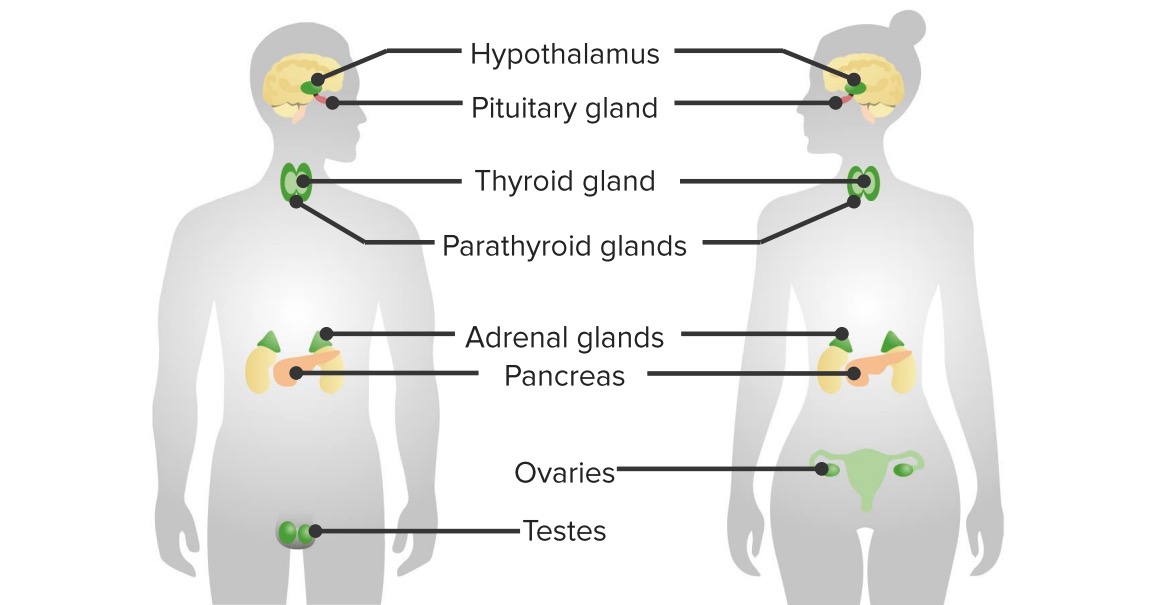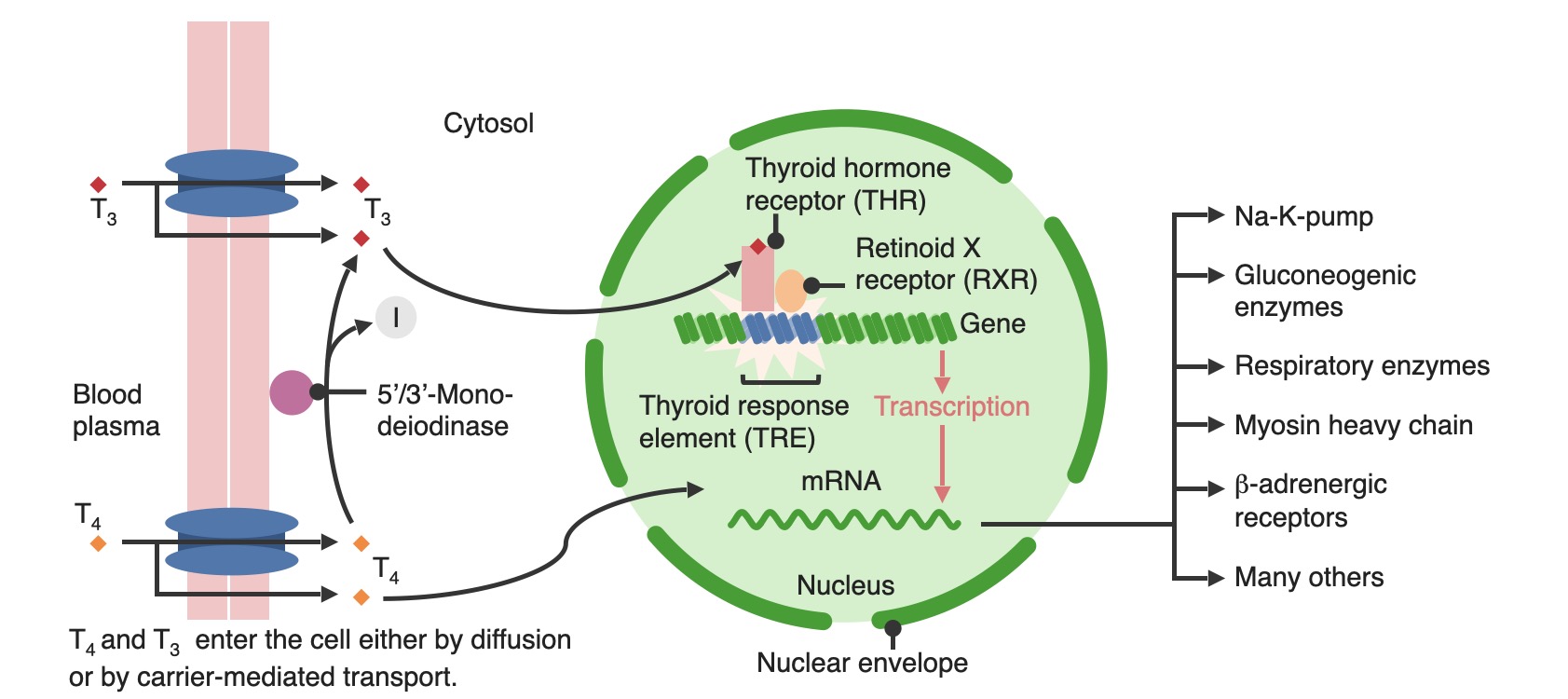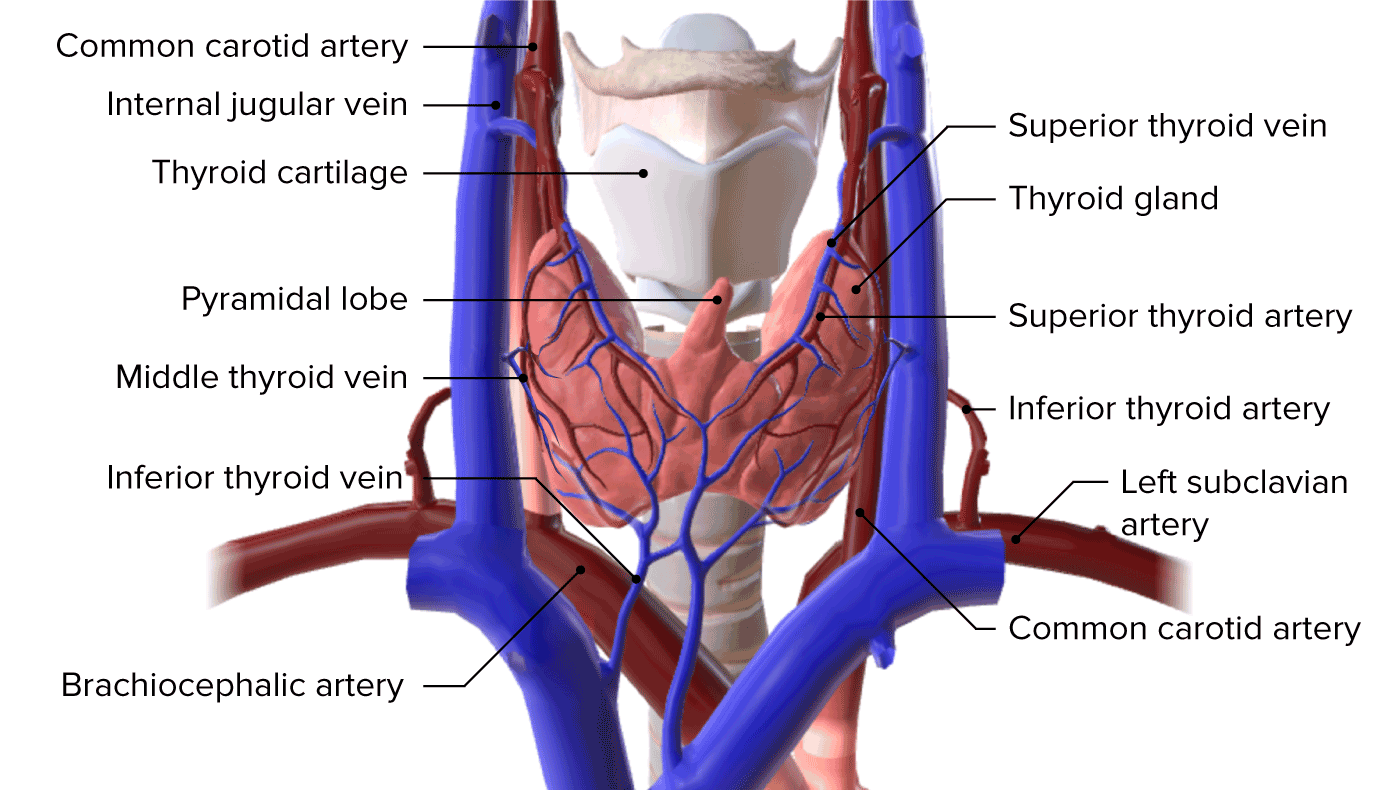Playlist
Show Playlist
Hide Playlist
Thyroid Hormone Transportation
-
Slides Thyroid Endocrine System.pdf
-
Download Lecture Overview
00:00 Thyroid Hormones Transportation. 00:03 It is important to be able to transport T4 and T3. 00:08 The reason is because these are hydrophobic hormones. 00:15 They would come out of solution if it was only then in the blood. 00:19 Therefore, you bind them to thyroid binding globulin, or transthyretin or albumin. 00:28 They help carry them around in the blood. 00:32 You have a little less than 1% in it's free non-bound form. 00:39 This is also handy because it provides a longer lasting thyroid hormone. 00:46 So what happens here is you can have T3 or T4 around for somewhere between 1 day and 1 week. 00:55 It increases it's 1/2 life. 00:58 It also allows for more of a larger storage pool of T3 and T4. 01:05 Because it will be in a bound state for a longer period of time. 01:09 T3 and T4 will get delivered to peripheral tissues. 01:15 It's important to think about how they get into those cells. 01:20 They would be able to cross the plasma membrane because they are lipophilic in nature. 01:26 There are sometimes however, that they will travel through larger pores as well. 01:31 T4 will be converted to T3. 01:36 This peripheral conversion is done by a specific enzyme 5'/3' monodeiodinase. 01:47 This enzyme facilitates that conversion by taking off one of the iodine. 01:54 T3 is important because it is so much more biologically active. 02:01 In fact it has a binding affinity for the hormone receptor 10 times that of T4. 02:09 The thyroid hormone receptor will then complex together and go into the nucleus binding to a thyroid nucleus response element, undergoing both than transcription and translation to make new proteins. 02:27 These new proteins are myriad of different functions. 02:32 Anything from the sodium-potassium-ATPase to enzymes involved with metabolism, to other things like myosin heavy chain that are involved in muscle, beta adrenergic receptors and many many others. 02:47 This up regulation of all of these processes you can think about, are driving the responses that we see with thyroid hormone physiological function.
About the Lecture
The lecture Thyroid Hormone Transportation by Thad Wilson, PhD is from the course Endocrine Physiology.
Included Quiz Questions
What percentage of thyroid hormone is NOT plasma protein bonded?
- 1%
- 2%
- 3%
- 4%
- 5%
What is the half-life of T4?
- 7 days
- 1 days
- 4 days
- 11 days
- 15 days
How is T4 transported into the cytoplasm of peripheral cells?
- Carrier-mediated uptake and diffusion
- Glycoprotein bonded channels
- Sodium exchange channels
- Specialised T3 channels
- Active transport
What reaction is catalyzed by the 5’/3’ monodeiodinase?
- Conversion of T4 into T3
- Conversion of T3 into T4
- Conversion of T4 into TSH
- Conversion of TSH into T3
- Conversion of TSH into T4
Customer reviews
5,0 of 5 stars
| 5 Stars |
|
5 |
| 4 Stars |
|
0 |
| 3 Stars |
|
0 |
| 2 Stars |
|
0 |
| 1 Star |
|
0 |






